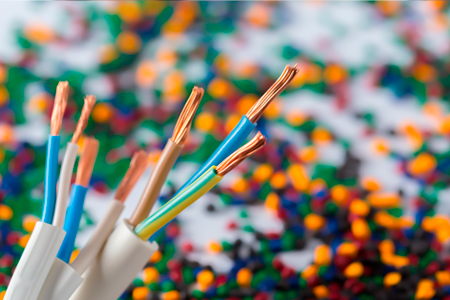
When choosing the right material for manufacturing engineering parts, it is very important to know the properties of these materials and to know what exactly will be the final destination, the use of the requested parts.
The choice of the right plastic will depend on the specific usage requirements and the necessary properties, such as heat resistance, chemical resistance and mechanical properties. We recommend that you to take a look at our post titled “4 Key Factors in Choosing the Most Suitable Material”.
The electrical insulating property of plastics must be an important consideration when machining these materials, but which plastics have the best insulating properties in this regard? In today’s post, we answer one of the FAQS in the machining and engineering plastics industry. So, if you have a machining project in mind, read on, this may be of interest to you!
In general, plastics are known to be good electrical insulators, which means that they have a relatively high resistance to electric current. Most of them also have a very low electrical conductivity compared to other materials. This makes them very effective insulators. Some examples of the most common plastics with electrical insulating properties:
The choice of the right plastic will depend on the specific usage requirements and the necessary properties, such as heat resistance, chemical resistance and mechanical properties. We recommend that you to take a look at our post titled “4 Key Factors in Choosing the Most Suitable Material”.
The electrical insulating property of plastics must be an important consideration when machining these materials, but which plastics have the best insulating properties in this regard? In today’s post, we answer one of the FAQS in the machining and engineering plastics industry. So, if you have a machining project in mind, read on, this may be of interest to you!
In general, plastics are known to be good electrical insulators, which means that they have a relatively high resistance to electric current. Most of them also have a very low electrical conductivity compared to other materials. This makes them very effective insulators. Some examples of the most common plastics with electrical insulating properties:
- Polyethylene (PE)
- Polypropylene (PP)
- Teflon (PTFE)
- Polystyrene (PS)
- PVC (Polyvinyl chloride)
- Thermosetting polymers: Some thermosetting plastics, such as epoxy resin and melamine, are excellent electrical insulators. They are used in the manufacturing of products such as insulators, coatings and high-resistance components.
When a new project comes to us, as expert consultants in the machining of plastic materials, we analyse all the technical details and usage requirements. Everything has to be consistent with the properties of the materials that will be used, and collectively ensure the best and safest solution for your project.
Shall we start working together?







